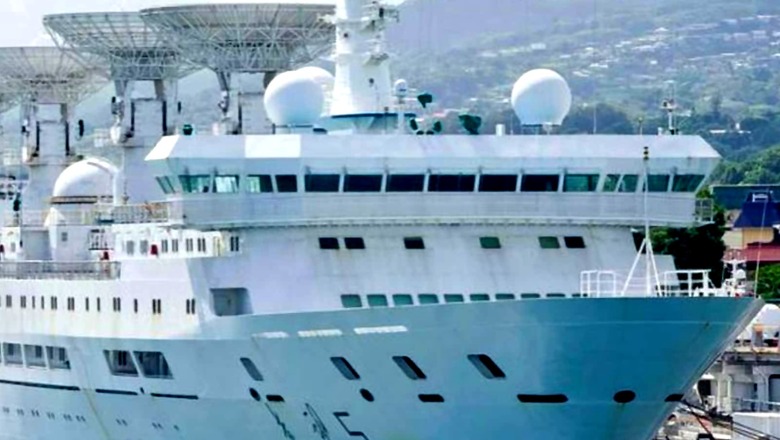
views
Intelligence sources have shared exclusive details with CNN-News18 about the Chinese spy ship Yuan Wang 5 and the real purpose of its latest voyage.
Yuan Wang 5 is a dual-use spy vessel, employed for space and satellite tracking and with specific usage in intercontinental ballistic missile launches.
This vessel is in control of the People’s Liberation Army (PLA) under its Strategic Support Force unit. The SSF focuses on space, cyber, and electronic warfare.
Yuan Wang 5 is a third-generation tracking ship of the Yuan Wang Series, which came into service on September 29, 2007, and was designed by China’s 708 Research Institute.
It is a highly sophisticated missile range instrumentation ship with top-of-the-line antennas and electronic equipment to support the launching and tracking of missiles and rockets.
They are used by the navies of China, France, India, Russia, and the United States, mainly for military purposes.
This vessel in question is coming to Hambantota Port on August 11 and will stay there until August 17. Sri Lanka has received a request for fuel and other supplies during the stay.
As per the available intelligence, after this stay, the Yuan Wang 5 will move to the Indian Ocean for other research like space tracking and satellite operation monitoring.
Sources say there is a strong possibility that the vessel is equipped with high-tech eavesdropping equipment to peer deep into Indian territory.
Indian naval bases on the east coast and ISRO launch stations at Chandipur are all vulnerable in the presence of such a vessel, they added.
While China has termed it routine research activity, Indian agencies are sceptical.
According to sources, China has timed this activity precisely to exploit Sri Lanka’s economic crisis to ensure Lankan ports become Chinese naval bases that can be used later by the PLA. The Chinese are embarrassing Lankans at this time to mainly spy on India, they added.
Intelligence sources also say that if this is a normal activity, why are the Chinese worried about the presence of American ships in their periphery for which they have raised strong objections? For instance, Beijing has been punishing South Korea by restricting tourism and holding trade hostage over the deployment of a US Terminal High Altitude Area Defense (THAAD) anti-missile battery in 2016.
The Freedom of Navigation (FoN) principle doesn’t hold good when the situation is detrimental to the security of other states, sources added.
Read all the Latest News and Breaking News here




















Comments
0 comment